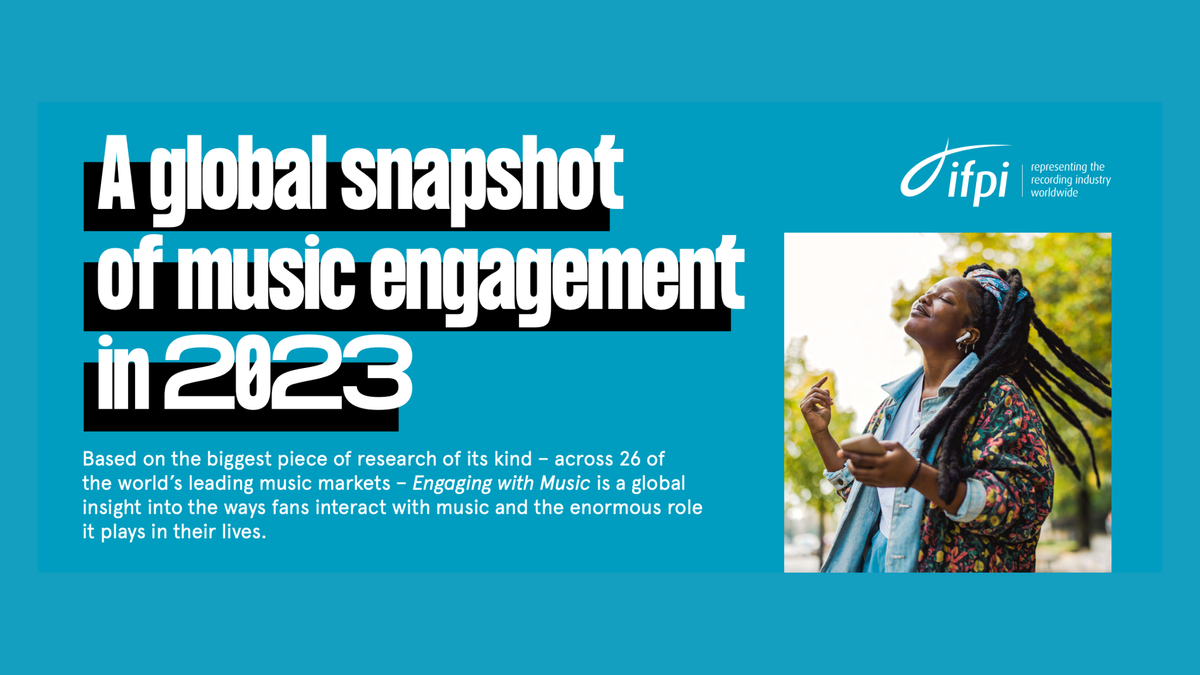Music Consumption Trends in 2023: Insights from IFPI Report
Recent research by the International Federation of the Phonographic Industry (IFPI) reveals a significant increase in music consumption globally. The report indicates a surge in the average time spent listening to music, as well as insights into the distribution of consumption across various platforms and channels.
Shifts in Music Consumption Patterns
The study suggests that the landscape of music consumption has not undergone substantial changes compared to the previous year. Notably, video-sharing platforms have continued to maintain comparable consumption levels to streaming services, despite generating significantly lower revenue for the music industry. Additionally, the report highlights the persistence of unlicensed music as an ongoing concern, emphasizing the need for continued efforts to protect the value of music.
Insights from IFPI’s ‘Engaging With Music’ Report
According to the ‘Engaging With Music’ report, the average time spent on music consumption has increased to 20.7 hours per week, up from 20.1 hours in 2022. The data, gathered from over 43,000 participants across 26 countries, underscores the growing prevalence of music consumption in daily routines.
Distribution of Music Consumption
The report delineates that streaming services, encompassing both premium and ad-funded models, constitute 32% of music consumption. In parallel, video-sharing platforms such as YouTube and TikTok account for approximately 31% of the total consumption. Despite this, the revenue generated from paid-for streaming services significantly outweighs that from ad-funded services, shedding light on the economic disparities within the music industry.
Furthermore, the report acknowledges the multifaceted role of music within video-sharing platforms, emphasizing the marketing value they provide alongside revenue generation. However, it also highlights industry concerns regarding the undervaluation of music on social media and user-generated content platforms.
Diverse Channels of Music Consumption
Besides streaming and video-sharing platforms, the report accentuates the significance of radio (17%), purchased music including CDs, vinyl, and downloads (9%), live music (4%), and an ‘other’ category that encompasses various channels such as TV, video-on-demand services like Netflix, and music played by friends (7%). This comprehensive breakdown underscores the diverse avenues through which people engage with music.
The Persistence of Unlicensed Music
The report unequivocally addresses the enduring challenge of unlicensed music, which poses a detriment to the music ecosystem by diverting fans away from legitimate platforms. Alarmingly, nearly 29% of respondents admitted to utilizing illegal or unlicensed methods to access music, with stream-ripping emerging as the most prevalent form of piracy.
Stream-ripping, in particular, enables individuals to obtain permanent downloads of temporary streams, with 26% of respondents admitting to engaging in this activity. Shockingly, this percentage surges to 41% among the 16-24 age demographic, underscoring the need for targeted interventions to curb such practices.
Addressing the Challenges Ahead
In response to these findings, Frances Moore, CEO of IFPI, emphasizes the imperative of safeguarding the value of music amidst evolving technologies. She asserts that while the opportunities for music consumption have expanded, combating unlicensed music remains a critical priority, necessitating concerted efforts to protect the integrity of the music industry.
Emphasizing Legal and Ethical Music Consumption
The report’s unveiling of the prevalence of stream-ripping and its association with evading premium subscriptions on streaming services underscores the importance of promoting legal and ethical music consumption. With 55% of stream-ripping users citing cost avoidance as a primary motivator, it becomes evident that targeted education and awareness campaigns are crucial in shaping responsible music consumption practices.
For those interested in delving deeper into the insights offered by the ‘Engaging With Music’ report, the full document is available for download here.
Conclusion
The IFPI’s comprehensive research illuminates the evolving landscape of music consumption, revealing both its burgeoning prevalence and persistent challenges. As the industry grapples with the complex interplay of technological advancements and ethical considerations, the report serves as a call to action for all stakeholders to collectively uphold the value of music and foster a sustainable and equitable music ecosystem.

